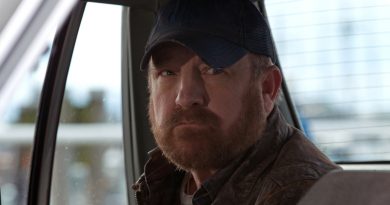Bots Dominate the Big Screen in 2015

[by guest contributor Brandon Engel]
It may seem surprising given our reliance on technology, but technophobia has been a part of the human psyche for over a century. Scientific achievements like rockets, robots, and space travel were all explored heavily in science fiction before they became real, and it was often the negative aspects that they explored. The motif of an aversion to technology found in early 20th century science fiction didn’t miss a beat when eyes turned from the page to the big screen. This recurring theme has continued even today.
Our Technophobic Past
Our fear of technology has been conveyed through literature for as long as the genre of science fiction has existed. The technologies change but the basic fear is still the same. Part of what distinguishes classic science fiction writers like Isaac Asimov (I, Robot) and Arthur C. Clarke (2001: A Space Odyssey) was that these authors had a propensity for predicting, not only future technologies, but also how technological advancements could magnify our anxieties. And indeed, these two writers helped to establish the conceptual basis for all modern robot movies. Asimov proposed that robots should not be engineered to harm the human race (neither through violence nor negligence), while Clarke suggested that while facets of modern technology, specifically satellite internet and modern telecommunication would improve our lives fundamentally, it remained humanity’s moral imperative to use modern technology for good — and it was inadvisable to allow the technology to make decisions autonomously.
Technological advancements bring about change that completely revamps society. We, as human beings, are essentially terrified of change. This is rooted largely in the uncanny feelings that modern technology and industry create for us — particularly the fear that modern technology will render humans obsolete.
But beyond merely that, science-fiction also reveals our anxieties about the misapplication of technology, and the degree to which human beings (not robots) employ technology towards harmful ends. Surely, our trajectory as a species isn’t entirely bleak, as evidenced by decreasing hunger throughout the world and increasingly available clean energy throughout North America. But that isn’t to say that we, as a species, don’t have our foibles. Ultimately, the robot is little more than a narrative device used to describe the darker aspects of humanity.
One of the first films to explore these themes was Fritz Lang’s Metropolis from 1927. The film is set 100 years in the future in a society where the wealthy live in a beautiful Metropolis above ground while the working class live below ground to maintain the machinery that keeps the Metropolis running. During this time period, cities were growing at an exponential rate. Skyscrapers were sprouting up in big cities like New York and soon became the rule rather than the exception. It was also soon after the communist revolt that led to the establishment of Soviet Russia. The plot involves the working class of the city revolting against the ruling class, which is the path towards Communism laid out by Karl Marx in his political pamphlet The Communist Manifesto.
America’s fear of Communism reached a fever pitch during the Cold War, and this was evident during the literature of the time period. The arms race between America and Soviet Russia spawned the invention and weaponization of rockets, guided missiles, and nuclear power. During the Cold War, our reason for fearing technology was the fear of opening a technological Pandora’s box. The basic formula of a technology that is intended to help but ends up being used for malicious purposes hasn’t changed since the Cold War. With the weaponization of unmanned drones and talk of robotic soldiers replacing humans going on today, the technological fear played up in today’s movies is the fear of robots and artificial intelligence.
Technophobia Today
Asimov laid the foundation for today’s fear of robots with his I, Robot anthology. This collection of short stories contained Runaround, which officially listed the three rules for the behavior of robots. The first rule states that robots must not harm humans and must protect them at all costs. The second law states that robots must obey all orders given by humans unless the order is to harm other humans. And the final law states that a robot must protect itself at all costs unless doing so would violate the first or second law.
Avengers: Age of Ultron, Ex Machina, and Chappie all have plots that revolve around an aspect of these three laws. In the new Avengers movie, Ultron is a crime-fighting robot that was designed to lighten the load for the Avengers. The plot thickens when Ultron sees all of humanity, including the Avengers, as a threat to the planet that must be destroyed. A military or police robot violates the first law in its design, and this violation is punished when Ultron violates the second law and turns on its creators.
Ex Machina also shows artificial intelligence revolting against its creator. The AI in this film is human-like in intelligence, behavior, and emotional range. The creator abuses his creations, and these creations revolt against the abuse even though it violates the first law of robotics. The message is an AI that behaves like a human can and will break any law that restricts its freedom.
RELATED ~ A.I. vs. Automated: The Tech of Chappie
Chappie is the most complex of the robot films in 2015. The AI in this film are used for police purposes, but a rogue police drone, Chappie, is programmed with the personality of a small child. This causes audiences to actually empathize with the robot and turn their fears towards how humans use this technology.
A common theme in today’s movies revolved around the fear of human-like behaviors. A robot is not “born” good or bad, it is programmed to be good or bad by humans. Our own human intelligence has made us incredibly savvy with technological advancements. And the fact that we can use computers, robots, and artificial intelligence as weapons makes technology (and humanity itself) even more terrifying than technology gaining sentience all on its own.
It is our moral imperative as a species to use technology constructively. Doing otherwise could be our undoing. But let’s at least be thankful that we have science-fiction to serve as a vehicle for social commentary. Science fiction authors not only predict futuristic dystopias – they also help to prevent them.
![]()




“Asimov laid the foundation for today’s fear of robots”
Are you mad, Brandon? Utterly mad??!! You obviously know nothing of Isaac Asimov’s Robot novels You do realize that ‘I Robot’ was a collection of short stories that in no way resembles the movie starring Will Smith, don’t you? Where did you get your Geek license, in a cereal box?
OK, to be fair most Geek licenses come from cereal boxes. But never mind that.
Sir, I challenge your Geek cred, and demand satisfaction. My response to your poorly informed essay shall be posted anon. Big ol’ can of geek whup-ass comin’ in your direction.
John